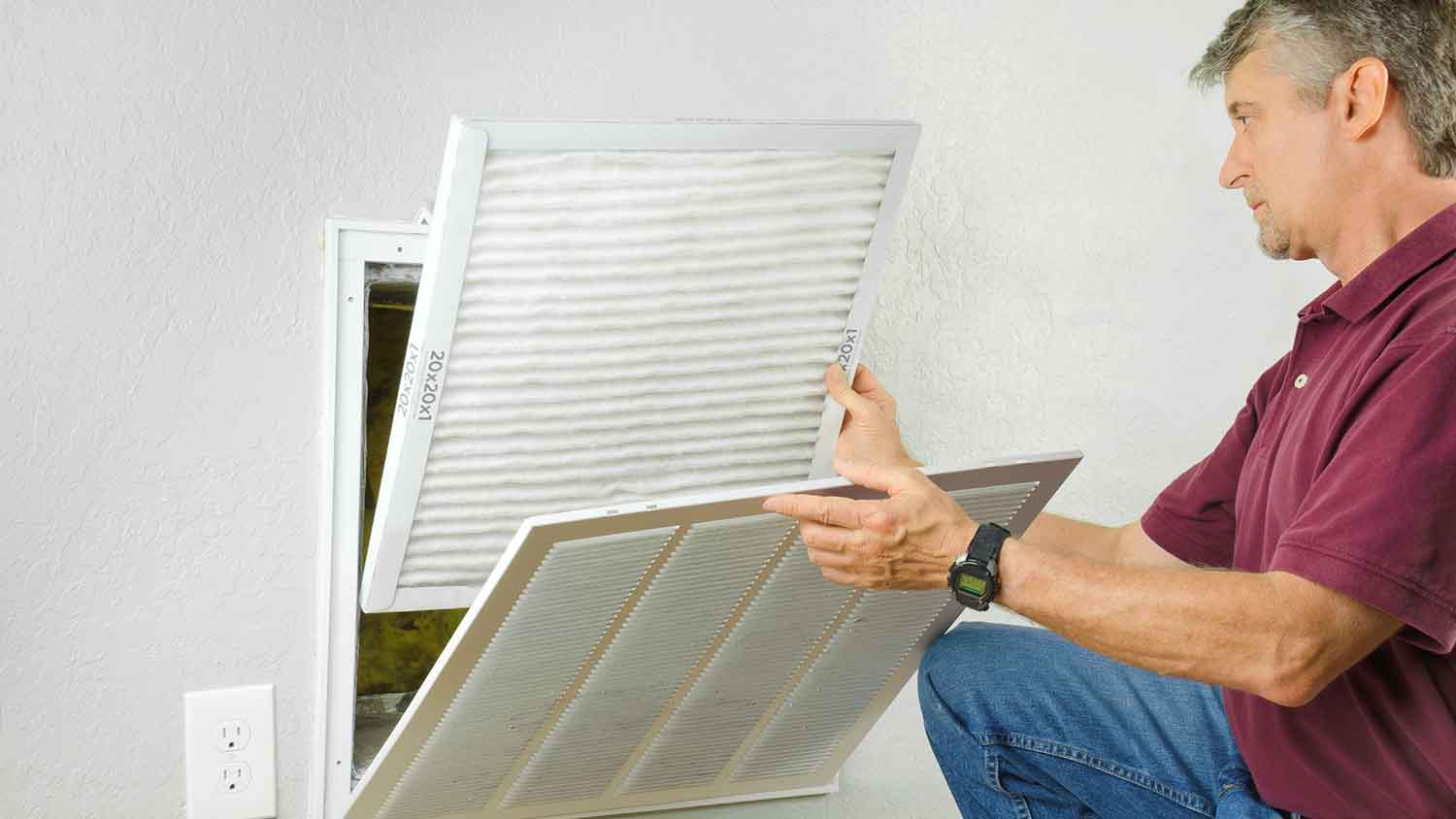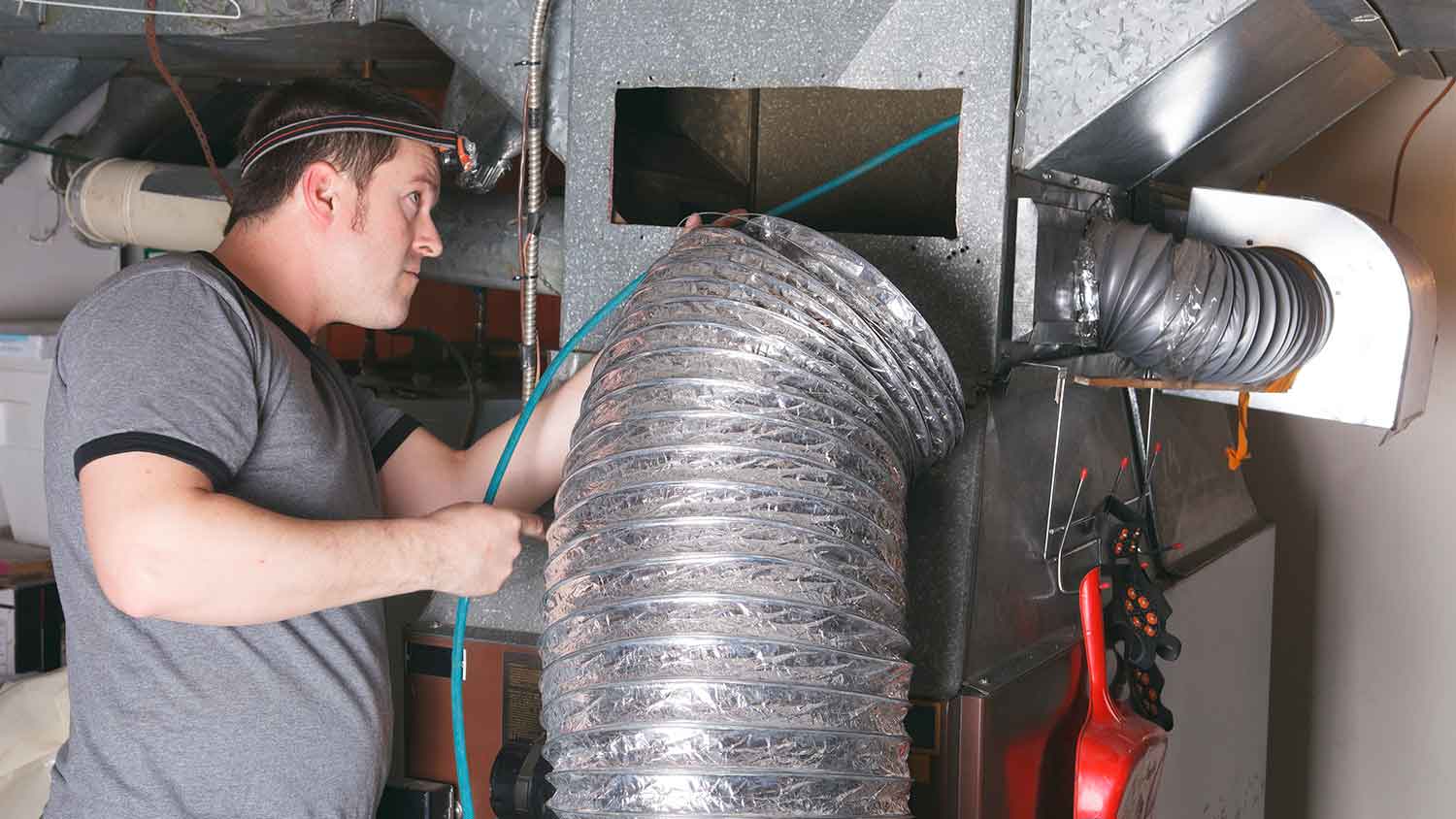
What you’ll pay in Columbus, OH, for furnace repairs depends on many factors. Here’s a breakdown of what can go wrong and the cost to fix those issues.
Stay cool without exposing yourself to moldy air


You power on your A/C for the first time in the early summer and a musty smell fills the air. The moist conditions of your A/C, whether it's through a central HVAC system or a window unit, can be ideal spots for mold to grow. To protect your health as you beat the heat, read on for tips on how to prevent mold growth in an air conditioner.

The filter in your air conditioner keeps dust and debris from getting into the condenser. But, filters don't last forever. Eventually, they fill up and aren't able to do their jobs as effectively, meaning dust and mold can build up in your air conditioner.
To prevent mold growth, get in the habit of changing your A/C filters regularly, ideally once a month in the summer. Whether you clean the filter or replace it depends on the type of air conditioner you have. For a window unit, you'll most likely clean the filter. For a central unit that's part of an HVAC system, you'll need to remove and replace the filter.
A regular inspection of your air conditioner or HVAC system can do more than prevent mold growth. Regularly scheduled HVAC inspections can detect issues with your system, such as high levels of moisture, and correct those problems before they lead to mold growth or other concerns.
Schedule an inspection at the start of the season, before you use the air conditioner for the first time. The sooner you schedule it, the better, as you'll be able to turn on the A/C as soon as the temperature creeps up, without having to worry about mold. If you think there is mold in your unit or elsewhere in your home, it's a good idea to hire a local mold inspector, too.
The air intake supplies air to your A/C. If you have a central HVAC system, the air intake is typically located on the side of your home.
Since the air intake is outside, it's exposed to the elements, including rain, fallen leaves and animals. A buildup of dead leaves, animal fur and water can create the perfect habitat for mold. When the HVAC system pulls air in, it will pull mold in with it.
Keep an eye on your air intake and clean it regularly. You want to remove any fallen leaves or other debris and keep the intake as dry as possible.
A mold control spray prevents mold from growing in your HVAC system. It works best when applied after your system has been disinfected. You can spray the mold inhibitor on drip pans, condenser coils, fans, and in the ductwork. An HVAC technician can also apply a mold inhibitor for you after cleaning and inspecting your unit.

Mold can also grow in the ductwork that delivers cool air throughout your home, particularly if the ducts have moisture buildup or become dirty. It can be worthwhile to hire a local air duct cleaner to inspect your ductwork if you're concerned about mold.
During the inspection, the air duct cleaner will thread a camera through your ductwork, looking for signs of debris, dust, and mold. If they notice any buildup, they may use a vacuum device to suction out any debris and dust. The duct cleaner may refer you to a local mold remediation company if there's a considerable amount of mold in the ductwork.
The bigger your A/C, the better, right? Not really. An oversized air conditioner unit will cool a small home quickly in the summer heat. But that's not always ideal.
When the indoor temperature drops too quickly, the A/C will shut off before it has sufficient time to remove humidity from the air. The result? Excess moisture that can build up in your unit, leading to mold growth.
If you're installing a window air conditioner unit, pay attention to the room size and the square footage the unit will cool down. Don't choose a unit rated for 500 square feet to chill a 200-square-foot room, for example.
From average costs to expert advice, get all the answers you need to get your job done.

What you’ll pay in Columbus, OH, for furnace repairs depends on many factors. Here’s a breakdown of what can go wrong and the cost to fix those issues.

If you’re having problems with your air conditioner’s condenser, it may be time for an upgrade. Learn about the cost to replace an AC condenser in this guide.

When your HVAC system is acting up, it could be the blower motor to blame. See how much blower motor replacement costs and what impacts the price here.

Condensation on air vents suggests something is wrong with your HVAC system. Learn how to stop condensation on air vents through preventive measures.

Ductwork losing energy? Here are six duct sealing methods that will help you get some big savings on your monthly energy bills.

Learn about the different types of electric furnaces to decide why you would use one and which option is best for replacing your home heating system.